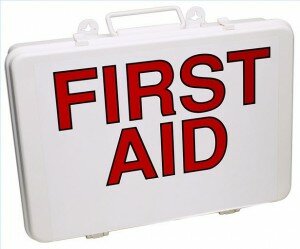April 19-25 marks the anniversaries of last year’s deadly tornadoes that ravaged the Midwestern and southern regions of the United States. In about a week, three tornadoes hit Ohio, Kentucky, Indiana, Illinois, Oklahoma, and Missouri, leaving behind a path of flattened homes and severe damage to the St. Louis area airport. Ultimately, in 2011 there were 550 confirmed fatalities- the most deaths in a single year for tornadoes in US history.
While we hope that Mother Nature shows us mercy this season by graciously allowing us to have a tornado-free spring, we also want you to be safe in the event of a tornado occurring this year and for years to come. Check out these 6 steps to prepare you and your family for in the event of a tornado.
- During any storm, listen to local news or a NOAA Weather Radio to stay informed about watches and warnings.
- Know your community’s warning system. Communities have different ways of warning residents ab
- out tornados, with many having sirens intended for outdoor warning purposes. Pick a safe room in your home where household members and pets may gather during a tornado. This should be a basement, storm cellar or an interior room on the lowest floor with no windows.
- The safest place to be is an underground shelter, basement or safe room. If no underground shelter or safe room is available, a small, windowless interior room or hallway on the lowest level of a sturdy bu
 ilding is the safest alternative. Do not seek shelter in a hallway or bathroom of a mobile home. If you have access to a sturdy shelter or a vehicle, abandon your mobile home immediately. Go to the nearest sturdy building or shelter immediately, using your seat belt if driving. Do not wait until you see the tornado.
ilding is the safest alternative. Do not seek shelter in a hallway or bathroom of a mobile home. If you have access to a sturdy shelter or a vehicle, abandon your mobile home immediately. Go to the nearest sturdy building or shelter immediately, using your seat belt if driving. Do not wait until you see the tornado. - After a tornado, continue listening to local news or a NOAA Weather Radio for updated information and instructions.
- If you are away from home, return only when authorities say it is safe to do so.
Remember, if a tornado hits your community, after ensuring that your family is safe, volunteer to help your fellow community members to recover and clean up. For more information on how to prepare you and your family before, during, and after a tornado strikes check out the Red Cross!



